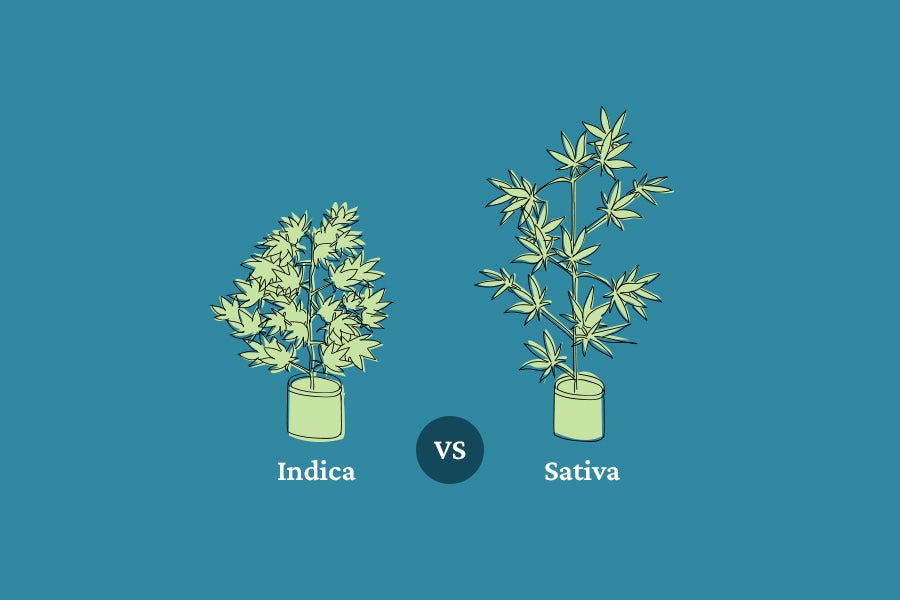There isn’t a great deal of research on how cannabis affects the human liver. From the research that does exist, we know the relationship between the two is somewhat complicated and varies depending on condition.
For most healthy individuals, cannabis use shouldn’t cause liver complications. It may even potentially play a protective role against developing alcoholic liver disease and nonalcoholic fatty liver disease.
➤ Get your medical marijuana card now with The Cannigma Medical
Anyone with a severe liver condition or taking other medications should ensure they are helping and not hurting the liver.
Although medicine still has many questions on medical marijuana and the liver, here is what science can tell us.
How marijuana interacts with the liver
To understand the effects of cannabis on the liver, let’s start with an explanation of how the endocannabinoid system (ECS) affects the liver. The ECS modulates many of the human body’s most crucial functions — like sleep, energy, memory, hunger, inflammation, and mood, to name just a few — and helps keep them in homeostasis or internal balance.
Common cannabinoids found in the cannabis plant — like THC and CBD — can activate the endocannabinoid system. Our body also produces its own cannabinoids (endocannabinoids) — and they also activate the ECS.
Studies show that activation of certain endocannabinoid receptors may worsen cirrhosis, enhancing factors like fibrogenesis, fibrosis, ascites, and steatosis. Activating a different endocannabinoid receptor seems to have the opposite effect. It can counteract fibrosis, steatosis, collagen deposition, and inflammation — promoting a healthy liver.
Endocannabinoids have also been shown to impact cirrhosis of the liver. Some can even act against fibrogenesis, improving liver health. So researchers are looking to further explore endocannabinoids as a potential target for the treatment of liver disease.
The benefits of cannabis for liver health
Existing research shows that activating ECS receptors with endocannabinoids may have a big impact on the liver — either helping or harming. So how does cannabis, a plant that activates these same receptors, impact the liver?
The effects of cannabis on the liver have mostly been studied in populations with liver disease — not healthy livers. That said, one small study did look at the influence of chronic cannabis use on liver function in general.
In this study, researchers found no significant differences in liver function for those with higher levels of THC markers in their blood. But they did find slightly better liver function for those with higher THC-OH levels. This research was limited due to a small sample size but suggests that chronic medical marijuana use doesn’t negatively impact liver health for healthy individuals.
Other research looks at cannabis and liver health relative to specific conditions or symptoms. For example, researchers investigated cannabis’s effects on alcoholic liver disease (ALD). Heavy, long term alcohol use causes ALD and cannabis may serve a protective role for this disease.
One very broad study found that those with the highest levels of medical marijuana use had significantly lower levels of ALD at all stages of the disease. These heavy cannabis users saw a 45% reduction in steatosis, or alcoholic fatty liver disease, a 40% reduction in steatohepatitis, or alcoholic hepatitis, a 55% reduction in alcoholic cirrhosis and fibrosis, and an impressive 75% reduction in hepatocellular carcinoma, or liver cancer.
Another study, which tied lower levels of ALD to CBD use, seems to suggest that cannabis use (or even just CBD) may actually be protective against the deadly long term effects of alcohol use.
Cannabis may help more than just alcohol-induced liver disease. Marijuana may also protect against non-alcoholic fatty liver disease. One study tied cannabis use to lower levels of this condition, in addition to ALD. So medical marijuana may be protective for our livers in general, not just as a protection against drinking.
Cannabis may also play a protective role in other specific conditions.
One study found that cannabis can protect the livers of patients suffering from psychosis — lowering the risk of steatosis.
Animal models also show evidence that cannabis use can improve symptoms of hepatic encephalopathy, likely via the anti-inflammatory properties of cannabis. Unfortunately, there have been no human studies on this condition to confirm the results.
CBD oil and the liver
These days, many cannabis users never smoke weed or eat THC edible, instead choosing to consume CBD oil. So how can CBD oil affect the liver?
In a 2019 study on mice, a high dosage of CBD led to fatalities for some of the mice subjects. Researchers noted elevated liver enzymes and increased liver size in the mice who died and concluded they died from liver issues.
They concluded that “CBD has the potential to cause liver injury,” based on how the highest CBD dose given to the rodents (2460mg/kg) “exhibited clear evidence of hepatotoxicity.” They added that lower doses of (246 mg/kg and 738 mg/kg) increased liver-to-body weight ratios.
Or in plain English, the researchers found that when given very high doses of CBD, the mice showed signs of liver toxicity, while in lower doses the researchers found liver swelling.
The researchers found that CBD doses above the 50 mg/kg minimum effective dose (MED) “were toxic when repetitively delivered,” and that the general toxicity observed included “pan-hepatic cytoplasmic swelling, increases in liver-to-body weight ratios, and elevated ALT, AST, and total bilirubin.”
They also cited animal studies that have show increased liver size in monkeys “and elevated liver enzymes in dogs when CBD was administered at doses as low as 2mg/kg of body weight,” as well as recent clinical trials in which 5-20% of human patients treated with CBD exhibited elevated liver enzymes at doses of 20 mg/kg.
The researchers concluded that CBD “poses a risk for liver injury,” and that additional studies are needed.
Other researchers, however, have pointed out some methodological problematic issues in the study.
For one thing, the dose of CBD administered was extremely high — a dose 100 times higher than the maximum recommended dose for Epidiolex, the only FDA approved CBD-based medicine for humans. But more importantly, the CBD was extracted using hexane — a solvent with known neurotoxic properties. It’s unclear whether the hexane was a factor in the mice’s death.
Beyond this, the sample size was only six mice, which is too small to have much statistical significance. Researchers on the study reported that 75% of the mice died — which would mean 4.5 mice died. Since this is an impossibility, one might ask what other errors the authors or researchers made. Confirming or discrediting these findings will require more research.
Also in 2019, the FDA issued a revised consumer update on CBD and products containing CBD, which stated simply that “CBD can cause liver injury.”
Can weed be bad for your liver? Risk factors

For liver related conditions other than hepatic encephalopathy, cannabis use may have more complicated interactions. Cannabis use may worsen chronic hepatitis C virus, for example. Animal studies show cannabis can actually worsen liver fibrosis and steatosis in hepatitis C. Human studies show that marijuana use can lead to suppression of anti-viral immunity in hepatitis C patients. In addition, studies on hepatitis C patients found that steatosis risk was predicted by daily cannabis smoking.
On the other hand, other studies have reported positive effects for hepatitis C patients using cannabis. One 2018 study found hepatitis C patients who use cannabis had lower levels of cirrhosis and lower total health costs. Another study found hepatitis C patients who used cannabis better adhered to their antiviral treatments and had better virologic outcomes. So for patients with this condition, cannabis could be helpful or harmful.
Another important area of risk management related to cannabis and the liver is drug interactions. Cannabis can interact with drug metabolizing enzymes in the liver. If taken with certain medications, this can cause them to become more or less potent and efficacious. In addition, certain drugs may make cannabis more or less potent.
While there has been little research on these drug interactions, we can deduce from what we know about pharmacology that certain drugs are more likely to have these interactions. For example, fluoxetine, fluvoxamine, fluconazole, clarithromycin, verapamil, itraconazole, voriconazole, and ketoconazole are all more likely to increase the concentration of THC and CBD in the blood by inhibiting its elimination from the body. In the other direction, rifampin has been reported to reduce THC blood levels by 20-40% and CBD levels by 50-60%.
While there is still only a limited amount of research, there are some interesting studies showing both risks and benefits of cannabis use on the liver. For healthy individuals, cannabis should not have a significant impact on liver function. It may even serve a protective role against developing alcoholic liver disease and nonalcoholic fatty liver disease. Still, for those with hepatitis C, or those using certain medications, cannabis use can cause complications.
If you do have a liver condition, it’s advisable to work with a cannabinoid specializing physician.
➤ Get your medical marijuana card now with The Cannigma Medical
The Cannigma content is intended for informational purposes only. It is not a substitute for professional medical advice, diagnosis or treatment. Always consult with an experienced medical professional with a background in cannabis before beginning treatment.
Sign up for bi-weekly updates, packed full of cannabis education, recipes, and tips. Your inbox will love it.

 Shop
Shop Support
Support




















how do you feel when taking cbd
Hi Dalary! This is an highly subjective question and depends on what type of CBD (isolate vs full spectrum) and also on the dose and the person. Many people report a calmness about them, other report feeling little to nothing. You can read more about CBD and how it makes you feel here https://cannigma.com/cbd/what-is-cbd/